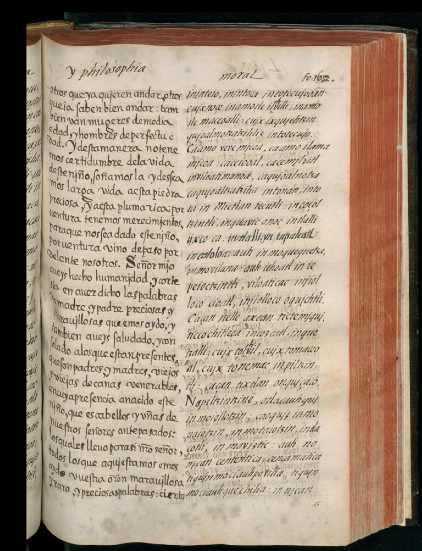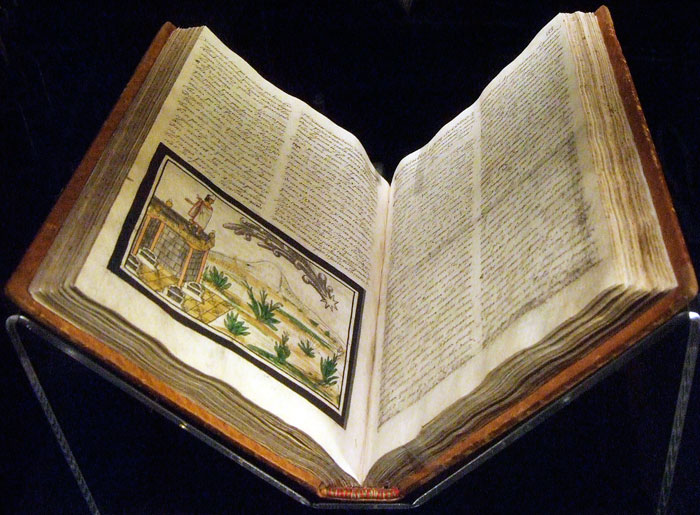Eight Aztec Indian Commandments
"the law was engraved upon the plates of brass" (1 Nephi 4:16) 600-592 BC
"the commandments of the Lord according to the law of Moses..." (1 Nephi 4:15) 600-592 BC
"But the seventh day, the sabbath of the Lord thy God, thou shalt not do any work, thou, nor thy son, nor thy daughter, thy man-servant, nor thy maid-servant, nor thy cattle, nor thy stranger that is within thy gates;
For in six days the Lord made heaven and earth, and the sea, and all that in them is; wherefore the Lord blessed the sabbath day, and hallowed it." (Mosiah 13:18-19) About 148 BC
----------------------
Lehi was commanded to get the "Plates of Brass" upon which were written the ten "commandments of the Lord…" In the Book of Mormon, as the above scripture indicated, the prophet Abinadi teaches the ten commandments to the wicked king Noah.
When Spanish Catholic friars first entered Mesoamerica, they observed and recorded native religious ceremonies and rituals. They were puzzled when they found that indigenous Aztec and Maya people already had in usage a similar form of at least eight of the Ten Commandments.
The Catholic Father Diego Duran recorded an oration regarding the Eight Aztec Indian Commandments from an Aztec priest in the mid-1500's: At one particular ceremony after the solemn rites had terminated, an elder with high authority, one of the dignitaries of the Aztec temple, arose. In a resonant voice he then preached words regarding the law and ritual, similar to the Ten Commandments:
1. Thou shalt fear, honor and love the gods.
The gods were so honored and revered by the natives that any offense against them was paid for with one’s life. They held the gods in more fear and reverence than we show to our own God.
2. Thou shalt not use the names of the gods on thy tongue or in thy talk to any.
3. Thou shalt honor the feast days.
The natives, with a terrible rigor, fulfilled all these ceremonies and rites with fasts and vigils, without exception.
4. Thou shalt honor thy father and thy mother, thy kinsmen, priests and elders.’
The old father or mother was held in reverence under the pain of death. Above all else these people charged their children to revere elders of any rank or social position. So it was that the priests of the law were esteemed, respected, by old and young, lord and peasant, rich and poor Old people, in our own wretched times, are no longer honored; they are held in contempt and scorned.
5. Thou shalt not kill.
“Homicide was strictly prohibited, but it was not punished by physical death. It was paid with civil death. The murderer was turned over to the widow or to the relatives of the deceased, [to be] forever a slave. He was to serve them and earn a living for the children of the deceased.”
6. Thou shalt not commit adultery.
Adultery and fornication were also condemned, to the point that if a man was caught in adultery, a rope was thrown about his neck, he was stoned, and [he was] then dragged throughout the entire city. After this, the body was cast out of the city to be eaten by wild beasts.
7. Thou shalt not steal.
The thief was either slain or sold for the price of the theft.
8. Thou shalt not bear false witness.’
“They punished those caught lying. Those who had committed these sins and broken the law went about constantly filled with fear, imploring mercy of the gods, asking not to be discovered. Pardon for these sins was granted every four years on the jubilee; their remission took place on the Feast of Tezcatlipoca " (Richard Graeber, Christians in America Before Columbus, Ancient American Issue Number 40,2001, pp. 7-8)
---------------------- A curious parellel of the Jewish and Indian moral laws may be found in that chapter of the third book of Garcia's Origin of the Indians, which he has entitled, "Como los Indios guardaron los Preceptos del Decalogo." "How the Indians obeyed the Ten Commandments"! (Bernardino de Sahagún VI 331)
A curious parellel of the Jewish and Indian moral laws may be found in that chapter of the third book of Garcia's Origin of the Indians, which he has entitled, "Como los Indios guardaron los Preceptos del Decalogo." "How the Indians obeyed the Ten Commandments"! (Bernardino de Sahagún VI 331)
